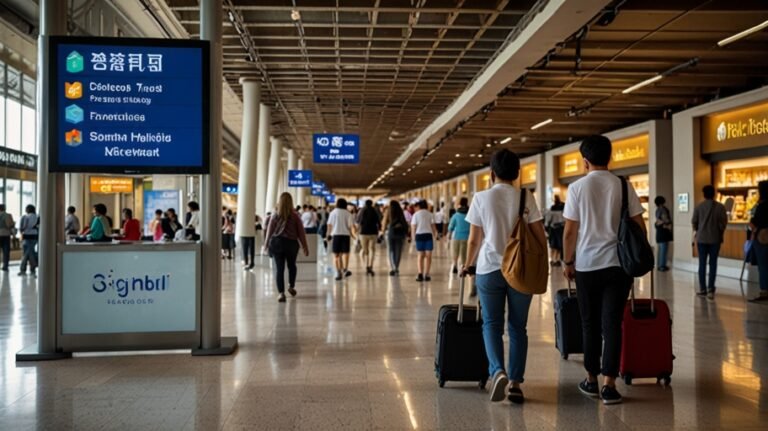An important milestone for the European tourism market is in coordinating the cooperation of Bulgaria and Germany in tourism. The announcement is part of a larger plan to accelerate the pace of tourism recovery after the pandemic and to tap into intra-European travel.
The partnership, unveiled during the recent meeting between the respective heads of the Bulgarian and German tourism organizations, is to boost the arrivals of German tourists to Bulgaria and promote the Bulgarian tourism market and potential to the German tourists. It is believed that this kind of cooperation will have a great impact on the development of both nations’ tourism sectors.
Germany, a leading source market for outbound tourism in Europe, has always been an important supplier market in many European destinations. Bulgarian officials view this partnership as a chance to enter this promising market more sufficiently. Germany and Bulgaria have access to a vast travel offering that can generate mutual flows of tourists to meet their tourist offerings.
Thus, understanding that the main role of this cooperation is the further improvement of regional tourist locations, an important aspect of the activity will be the introduction of Bulgaria’s not-very-famous brands. It should also be added that although Bulgaria’s Black Sea coast is known for its popularity among German tourists, there is an active promotion of Bulgaria’s dense culture, historical and infrastructural offer, beautiful mountain landscapes, and rapidly developing wine tourism. This diversification strategy aims to attract more variants of travelers to Germany, including cultural, historical, natural, and food.
These include cooperation in integrated advertising, marketing, and promotions, participating in travel trade fairs, as well as organizing operators and journalist familiarization tours for potential holiday makers to Germany. These measures are aimed at increasing the popularity of Bulgaria’s tourist opportunities and developing new tourist products that adapt to the demands of the German market.
I want to emphasize that digital marketing will be an important part in this partnership. Each country will use social media, targeting well-known individuals and online advertising to find travelers. There are also plans to create virtual tours of Bulgarian landmarks to bring an idea of the country’s sights to the Germans before they decide to visit.
Sustainability, on the other hand, is another important consideration within this strategy for tourism partnerships. Bulgaria and Germany both aim at the sustainable development of travel and tourism and the improvement of local communities’ standards. This corresponds with the Germans’ trend of traveling sustainably as they become more concerned with the impact they make on their natural environment.
The partnership also exists for the purpose of enhancing the level of connection between the two countries. Currently, in a bid to make it easier for German tourists to visit Bulgaria, there are plans being made to enhance the connectivity by providing a large number of direct flights to other cities in Bulgaria from major German cities. Moreover, future improvement in railway accessibility is also being prepared, referring to the increased interest in slow tourism and sustainable tourism.
As part of these tourism cooperation, cultural exchange programs are being initiated. Such measures would increase understanding between people of two countries and leave a positive and unrepeatable performing for tourists. The Bulgarian fests next to traditional dances, traditional cooking shows how genuine German tourists will have a chance to try Bulgarian cuisine and watch artisans at work.
This partnership also embraces the hospitality industry as well. The results show that obligatory training programs, as well as bilateral exchanges with German tour operators and hotel managers, will help transfer knowledge and skills in hotel management and customer care to Bulgarian stakeholders. These improvements are anticipated to improve the quality of tourism services in Bulgaria, which is destined to be a more attractive destination center for high-quality German tourists.
The two nations are also seeking opportunities on how to diversify tourism strengths in specialist markets. From the case of Germany, which, like Bulgaria, has a developed health and wellness tourism industry, Bulgaria could draw useful lessons in the establishment of the spa and medical tourism industry. On the other hand, Bulgaria had diversified archaeological and newly emerging adventure attractions that might interest specialized German tour operating companies in search of new products for market offerings.
The fact that this partnership has been formed at this moment is especially important as it takes place after such an event as UEFA EURO 2024 held in Germany. If the organization of this major sporting event has indeed proven successful, Germany’s reputation as a premier tourism spot has only been boosted, and interest in European travel inspired. Given this trend, Bulgaria has the potential to seize the opportunity and attract German travelers seeking new traveling destinations.
Although the partnership under discussion is aimed at developing leisure tourism, there are some strategies to develop the business tourism between the countries. From the perspective of Germany, its still quite a developed economy and for Bulgaria, on the backdrop of its surging IT and outsourcing industries, there are opportunities for additional business trips and MICE tourism.
Meanwhile, both countries see this partnership as a way of boosting the tourism business in the future as it develops. For Bulgaria it open the door to increase its’ market share in Germany and to become not only a summer tourism destination but all year round destination. As for Germany it presents the opportunity of diversification of the tourism partnership inside Europe, and contributes to the overall Europe’s tourism’s recovery.
The positive experience of this so-called product of the Bulgaria-Germany tourism cooperation may well be a model of cooperation that can catch on in the rest of Europe, demonstrating the capabilities of successful strategic partnerships in international tourism development for the enhancement of friendly diplomatic relations. Thus, adhering to this line of work and as the initiative expands, the industry is keen to observe the correlated change in the appearance of European tourism in the context of the post-pandemic world.




















+ There are no comments
Add yours